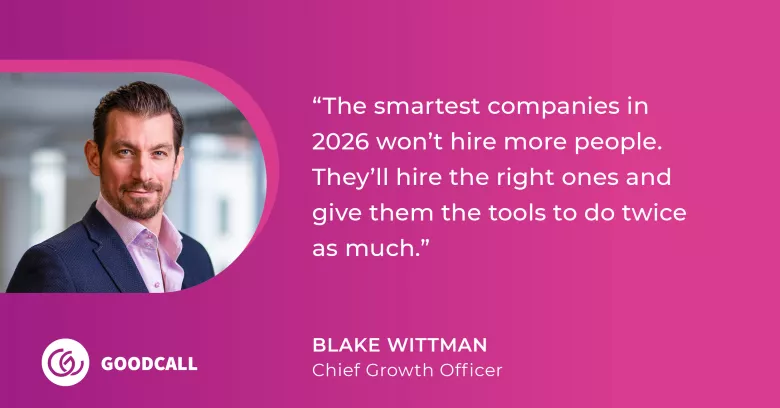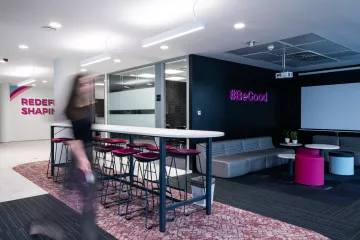
Hiring Has Changed. Are You Ready for 2026?
As 2026 approaches, companies are navigating tighter budgets and growing pressure around recruitment. Blake Wittman, Chief Growth Officer at GoodCall, shares his insights on the new reality of hiring, and why companies need to rethink how and who they hire next.
Blake, what should effective hiring look like in 2026 when companies face tighter budgets?
We’re already seeing the shift. Companies are starting to question whether they need the same headcount as before. With AI boosting productivity, many are realizing they can achieve more with fewer hires.
It’s no longer about hiring in volume. It’s about hiring smarter. That means knowing exactly what kind of talent you need, when you need it and supporting your teams with tools that enhance their performance.
At the same time, agility matters more than ever. Hiring plans can’t be static. Companies must stay flexible. They need to be able to scale up when needed or shift focus fast. That’s going to be a key factor in staying competitive next year.
Do you think companies can balance cost efficiency and candidate quality?
It’s possible but only if they rethink their approach. Too many companies rely on expensive external consultants or recruitment agencies for every hire, which adds up quickly.
That’s where RPO makes sense. Instead of paying per hire, you get a dedicated recruiter who works as an extension of your company. It’s more cost-effective and with the AI tools we’ve built at Goodcall, our recruiters can deliver faster without sacrificing quality.
But quality doesn’t just mean seniority. Right now, many companies are avoiding junior hires and that worries me. If no one’s investing in juniors, where do future seniors come from? For long-term talent growth, we need to balance both.
AI tools are gaining more influence across all fields. How do you see AI shaping recruitment over the next few years?
There’s a lot of hype around AI, but not all of it holds up. I’d say 80% of tools promise more than they deliver. But the 20% that do work? They’re game changers. Especially when it comes to sourcing, automation and speeding up repetitive tasks.
At Goodcall, we use AI to support our recruiters, not replace them. Our tools help with job intake, sourcing strategies, shortlisting and even note-taking during interviews. That means our team can focus more on people, while the tech handles the repetitive tasks. We like to think of them as AI-powered recruiters.
So no, I don't believe AI will be fully replacing recruiters anytime soon. But recruiters who don’t use AI? They’re going to fall behind. That’s the shift we’re already seeing and it’s only going to grow.

Where do companies often fall short when it comes to attracting talent today?
The candidate experience is still one of the weakest points. Many companies don’t have an established process: how many interview rounds there are, who’s involved or what candidates should expect. When it’s not clear, candidates feel lost or frustrated, and companies lose them.
The other big gap is employer branding. Most businesses don’t really own their brand – the market does. And often, it’s based on who they used to be. What people remember from three or four years ago may have nothing to do with the company they are today.
To attract the right people in 2026, companies need to update both. Create a solid process that respects candidates and make sure your brand reflects what you truly stand for now.
You’ve seen the recruitment world change over the years. Looking ahead, what excites you most about the future of hiring?
Honestly, the pace of change. I think we’ll see roles emerge in the next 10 years that don’t even exist yet. Technology is evolving so fast that it’s reshaping how teams work, how we find talent and even what we consider a “job.”
The biggest opportunity is reducing the friction. Right now, hiring, employer branding, and talent attraction still move too slowly. I’d love to see a world where companies can adjust their strategies in a matter of days, instead of weeks or months. That’s where I hope we’re headed.
AI will definitely play a big role in that. It won’t replace all people, but it will help companies move faster and hire smarter.
As a final thought, what should companies do now to be better prepared for 2026?
Start early. Too many companies wait until January to finalize budgets, headcounts and hiring plans. By the time they’re ready, it’s already March. If you want to stay ahead, get those decisions locked in now.
I’d recommend using the end of the year to define your hiring needs, test tools, align your teams and get your strategy in motion. Even using the remaining budget wisely, for example investing in recruitment support, can set you up for a strong start in January.
This is where GoodCall comes in. Our recruiters bring the right know-how and AI tools to help you move quickly and efficiently.
Další zajímavé články
-
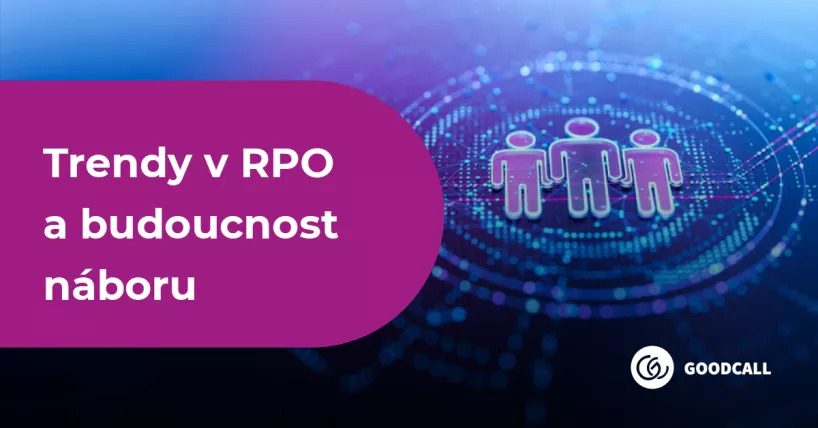 RPO
RPOTrendy v RPO a budoucnost náboru
06. 01. 2025 -
 RPO
RPOCo klienty přivádí k RPO řešení
06. 01. 2025 -
 RPO
RPONa co se musí připravit RPO konzultanti
26. 11. 2024 -
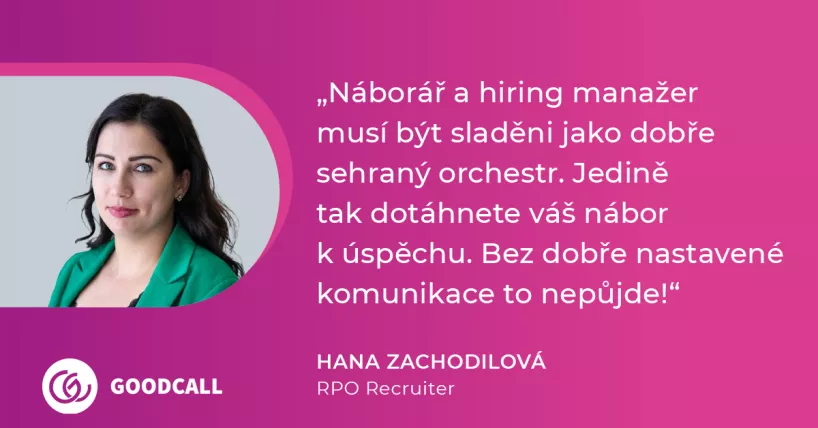 RPO
RPOHledáte parťáky do týmu? 3 tipy nejen pro hiring manažery, jak uspět při náboru
23. 10. 2024 -
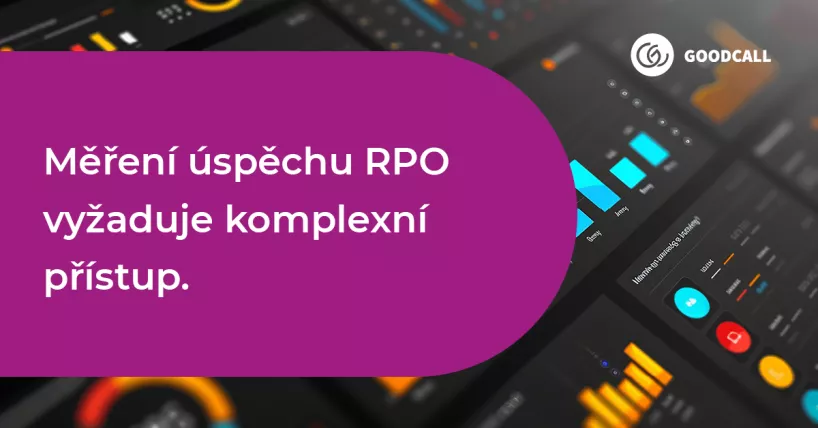 RPO
RPOMěření úspěchu RPO: Kontext interpretace metrik - část 3.
21. 10. 2024 -
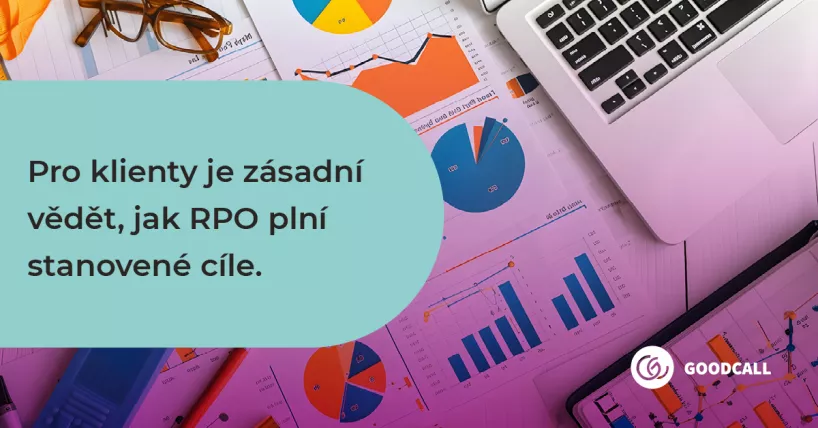 RPO
RPOMěření úspěchu RPO: Analýza metrik z pohledu klienta – část 2.
14. 10. 2024 -
 RPO
RPOMěření úspěchu RPO: Jaké metriky nastavit a sledovat - část 1.
04. 10. 2024 -
 RPO
RPO,,Myslím, že love brand jako takový hraje velmi zásadní roli" říká Dominika Radová, RPO Consultant at GoodCall
07. 08. 2024 -
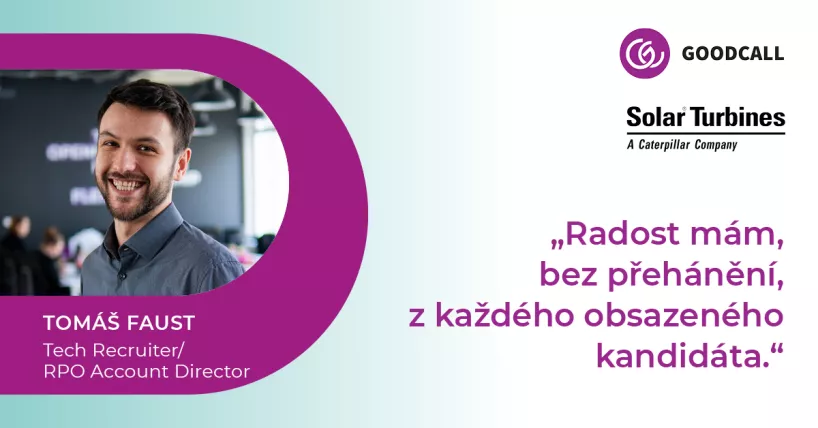 RPO
RPO,,V rámci letošního roku směřujeme ke 47 pozicím," říká Tomáš Faust, RPO Account Director
17. 07. 2024
